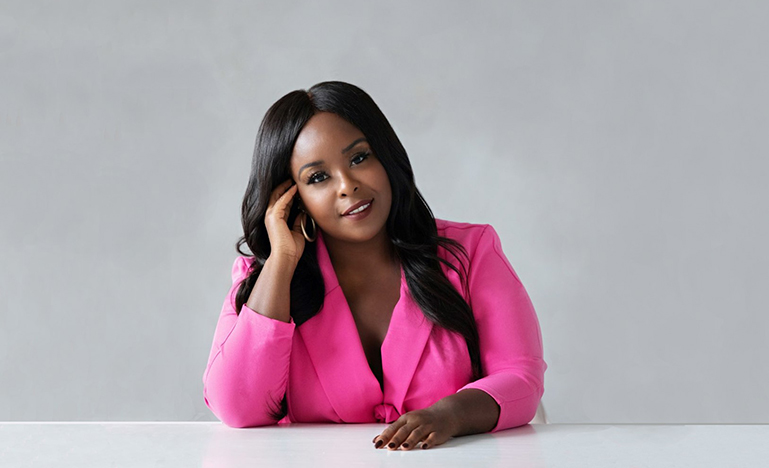Law students often get the message that lawyers are expected to work long hours and are at risk of developing mental health or addiction issues. The problem is when people are taught to expect to be miserable in law, many will figure it’s a waste of time searching for a legal career that brings them happiness.
It’s why we started Not Your Average Law JobTM in June 2021: To profile and shine a light on happy Canadian lawyers, at all stages of their careers, from first-year calls to those with decades of experience, and show it’s possible to enjoy a fulfilling law practice.
Here are some lessons you can learn from some of them.
1. Embrace innovation
The legal profession is notoriously slow to embrace technology and innovation. Young lawyers bring a fresh perspective and tend to be more tech agile, both advantages in finding happiness in the profession.
Aman Costigan balances her traditional legal work at Shores Jardine with teaching online yoga classes for lawyers focusing on mindfulness techniques to improve their mental wellbeing. She leverages social media sites like LinkedIn to promote both her yoga business (Beyond Yoga for Lawyers) and law practice and the feedback she gets leaves her smiling.
Vancouver lawyer Eli Zbar has technology to thank for helping him start his practice, Arora Zbar LLP, right out of articling. If a process can be streamlined by existing tech or new innovation, Eli is game to give it a try. Using different apps and management software allows Eli to accomplish more, charge his clients less, and live the life he chooses.
2. Take chances
When Erin Ryskamp saw the job posting for legal counsel at fintech company Mogo in 2017, she thought the job was “way too cool” for her but applied anyway. It didn’t take her four years to become its senior director of legal and business affairs. Her first years as a lawyer in private practice had left her unhappy. She is now thriving in her career in-house.
Having graduated with top honours from a prestigious law school in Pakistan, Amna Bhatti was shocked at how difficult life can be for internationally trained lawyers in Canada. Although she felt the pressure that many law students feel to get a high-paying Bay Street job, Amna longed to work a job that fulfilled her passion for human rights and allowed her to enjoy the rest of life and invest in her creative pursuits. After articling in the big city, she knew she did not want the traditional lawyer lifestyle. She took a chance and moved to Whitehorse, where she works as a Human Rights Officer with the Yukon Human Rights Commission and photographs wildlife right outside her door.
When Samantha Peters could not find the law job of her dreams, she built it. She created Black Femme Legal – a Law Foundation of Ontario-funded and award-winning toolkit of curated resources for Black queer women, femmes and gender-diverse folks experiencing anti-Black violence, discrimination, harassment and misogynoir in the workplace. Applying for a grant to start the project was a long shot but led to something great.
3. Create change
The traditional way of lawyering is not for everyone. According to James Struthers, much of the legal profession’s unhappiness stems from the unintended, adverse consequences of overhead-heavy, top-down pyramidal firm structures. After years working at a national and a traditional midsized firm, James sought opportunity to get access to some of the benefits of larger firms (accounting and compliance support, marketing support, tech infrastructure, etc.) without compromising the benefits of a small firm and solo practice (autonomy, flexibility, income potential, direct client contact, etc.). James started macushlaw, a new practice platform to make it easier for solos and small firms to launch, build and enjoy the benefits of their small law practice.
4. Don’t be alone
Happy lawyers will often mention the people who have supported them on their journeys, the co-workers that make their days better, and relationships outside of work that they prioritize. Priya Sankarapa, an immigration lawyer with PVS Immigration, found her happiness in a job that did not expect her to be in the office every day. Her family is in India, and her career now allows her to visit them for extended periods while working from abroad. Victoria Weir, a program coordinator with the Community Legal Education Association in Winnipeg, finds joy in the supportive team she works with, and the opportunity she gets to share her knowledge with the community that is so important to her.
5. Find growth in vulnerability
Every lawyer we have interviewed was open to vulnerability in agreeing to put their personal stories in the public eye. Being vulnerable takes a lot of courage and often causes a ripple effect of positivity.
Elsa Ascencio, a workers’ rights lawyer with the Hamilton Community Legal Clinic, is also an artist and jewelry maker. She draws many comparisons between making art and the practice of law, but one that stands out is that vulnerability is critical to both. Elsa is open with her team and the public about her mental health struggles and works best when she can embrace failure and feel safe asking for feedback. Learning from her mistakes helps her to be a better lawyer and artist.
The community of happy Canadian lawyers is growing, and we want you to join in the fun. The first step might be to raise your expectations. A law degree is the ticket to the freedom to choose from a wide variety of jobs and tailoring your practice to what interests you.



